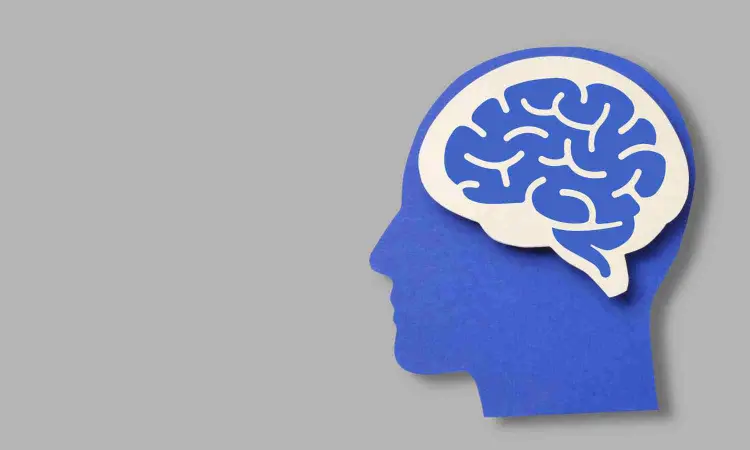- Home
- Medical news & Guidelines
- Anesthesiology
- Cardiology and CTVS
- Critical Care
- Dentistry
- Dermatology
- Diabetes and Endocrinology
- ENT
- Gastroenterology
- Medicine
- Nephrology
- Neurology
- Obstretics-Gynaecology
- Oncology
- Ophthalmology
- Orthopaedics
- Pediatrics-Neonatology
- Psychiatry
- Pulmonology
- Radiology
- Surgery
- Urology
- Laboratory Medicine
- Diet
- Nursing
- Paramedical
- Physiotherapy
- Health news
- Fact Check
- Bone Health Fact Check
- Brain Health Fact Check
- Cancer Related Fact Check
- Child Care Fact Check
- Dental and oral health fact check
- Diabetes and metabolic health fact check
- Diet and Nutrition Fact Check
- Eye and ENT Care Fact Check
- Fitness fact check
- Gut health fact check
- Heart health fact check
- Kidney health fact check
- Medical education fact check
- Men's health fact check
- Respiratory fact check
- Skin and hair care fact check
- Vaccine and Immunization fact check
- Women's health fact check
- AYUSH
- State News
- Andaman and Nicobar Islands
- Andhra Pradesh
- Arunachal Pradesh
- Assam
- Bihar
- Chandigarh
- Chattisgarh
- Dadra and Nagar Haveli
- Daman and Diu
- Delhi
- Goa
- Gujarat
- Haryana
- Himachal Pradesh
- Jammu & Kashmir
- Jharkhand
- Karnataka
- Kerala
- Ladakh
- Lakshadweep
- Madhya Pradesh
- Maharashtra
- Manipur
- Meghalaya
- Mizoram
- Nagaland
- Odisha
- Puducherry
- Punjab
- Rajasthan
- Sikkim
- Tamil Nadu
- Telangana
- Tripura
- Uttar Pradesh
- Uttrakhand
- West Bengal
- Medical Education
- Industry
Greenness linked to fewer hospital stays for mental health conditions: Study

Higher levels of greenness are associated with lower risks of hospital admissions for mental disorders, finds an analysis of data from seven countries over two decades, published in The BMJ’s climate issue today.
The results suggest that this protective effect increases with greater exposure to greenness, with no clear threshold - evidence that can inform urban design and health policy to better protect mental health, say the researchers.
Mental wellbeing remains a global challenge. It’s estimated that 1.1 billion people had mental disorders in 2021, contributing to 14% of the global disease burden with associated economic and societal costs.
Growing evidence suggests that exposure to greenness might reduce the risk of mental disorders, but most previous studies are limited to single countries, short term exposures, or specific mental health outcomes.
To address these gaps, researchers analysed 11.4 million hospital admissions for mental disorders from 6,842 locations in seven countries (Australia, Brazil, Canada, Chile, New Zealand, South Korea, and Thailand) from 2000 to 2019.
They included all cause mental disorders and six specific categories (psychotic disorders, substance use disorders, mood disorders, behavioural disorders, dementia, and anxiety).
Greenness was measured by the normalised difference vegetation index (NDVI), a widely used and reliable satellite derived metric for assessing vegetation levels in a given area.
Factors including population levels, weather conditions, air pollutants, socioeconomic indicators and seasonality were taken into account and models were stratified by sex, age, urbanisation, and season.
The results show that local greenness was associated with a 7% reduction in hospital admissions for all cause mental disorders, with stronger associations for substance use disorders (9%), psychotic disorders (7%), and dementia (6%).
However, associations varied across countries and disorders. For example, Brazil, Chile, and Thailand showed consistent protective associations across most disorders, while in Australia and Canada, greenness was associated with modestly increased risks for all cause mental disorders and for several specific disorders.
Overall, protective associations were strongest in urban areas, where an estimated 7,712 hospital admissions for mental disorders annually were potentially preventable through greater exposure to greenness.
Seasonal patterns were also found in urban areas, suggesting that climate and weather conditions play a crucial role in how green spaces are used and perceived, say the authors.
Further analysis in urban areas suggested that a 10% increase in greenness was associated with fewer hospital admissions for mental disorders ranging from around 1 per 100,000 in South Korea to approximately 1,000 per 100,000 in New Zealand.
This is an observational study so no firm conclusions can be drawn about cause and effect and the authors acknowledge the uncertainties of using hospital admission data from multiple countries. They also point out that their results only capture severe disorders requiring inpatient care so underestimate the full burden of mental health.
Nevertheless, they say this study suggests “a considerable proportion or rate of hospital admissions for mental disorders may be associated with exposure to greenness and could potentially be reduced through greening interventions under realistic scenarios.”
“These mental health benefits may also bring broader economic and social advantages, including reduced healthcare costs, less strain on health systems, improved workplace productivity, and enhanced community wellbeing.”
Future research should aim to explore the differential effects of various types of green spaces, such as parks or forests, on mental health outcomes, and focus on assessing the quality and accessibility of green spaces, they add.
Reference: Ye T, Huang W, Xu Z, Xu R, Yu P, Wu Y et al. Greenness and hospital admissions for cause specific mental disorders: multicountry time series study BMJ 2025; 391 :e084618 doi:10.1136/bmj-2025-084618
Dr Kamal Kant Kohli-MBBS, DTCD- a chest specialist with more than 30 years of practice and a flair for writing clinical articles, Dr Kamal Kant Kohli joined Medical Dialogues as a Chief Editor of Medical News. Besides writing articles, as an editor, he proofreads and verifies all the medical content published on Medical Dialogues including those coming from journals, studies,medical conferences,guidelines etc. Email: drkohli@medicaldialogues.in. Contact no. 011-43720751


